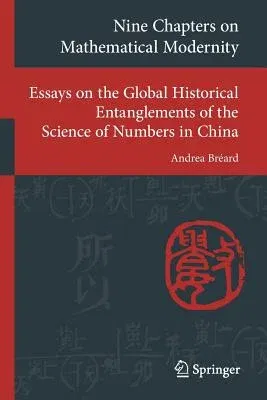Andrea Bréard
(Author)Nine Chapters on Mathematical Modernity: Essays on the Global Historical Entanglements of the Science of Numbers in China (2019)Paperback - 2019, 8 July 2019

Qty
1
Turbo
Ships in 2 - 3 days
In Stock
Free Delivery
Cash on Delivery
15 Days
Free Returns
Secure Checkout

Part of Series
Transcultural Research - Heidelberg Studies on Asia and Euro
Print Length
281 pages
Language
English
Publisher
Springer
Date Published
8 Jul 2019
ISBN-10
3319936948
ISBN-13
9783319936949
Description
Product Details
Author:
Book Edition:
2019
Book Format:
Paperback
Country of Origin:
NL
Date Published:
8 July 2019
Dimensions:
23.39 x
15.6 x
1.6 cm
Genre:
Asian - Chinese
ISBN-10:
3319936948
ISBN-13:
9783319936949
Language:
English
Location:
Cham
Pages:
281
Publisher:
Weight:
421.84 gm